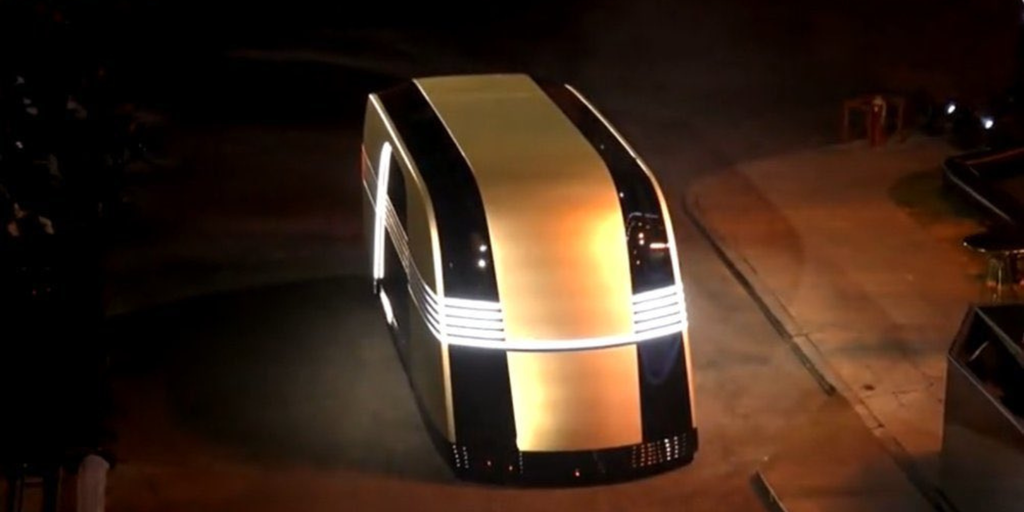CEO Elon Musk unveiled Tesla’s new line of self-driving vehicles, including its new Robotaxi and Robovan, with more than three million people tuning into the company’s We, Robot event.
“One of the things that we want to do, and we’ve seen this with the Cybertruck,” Musk said Thursday night during the company’s event at Warner Brother Studios in Los Angeles. “We want to change the look of the roads. The future should look like the future.”
Musk said Tesla envisions an exciting, fun future of transportation, in contrast to the bleak, dystopian visions often depicted in science fiction like the Bladerunner series.
“I love Blade Runner, but I don’t know if we want that future,” he said. “I think we want that duster he is wearing, but not the bleak apocalypse.”
The presentation that got off to a late start due to an emergency at the venue showcased 50 fully autonomous Tesla vehicles that came without a steering wheel or gas and brake pedals.
The showing was aimed at demonstrating the company’s progress in self-driving technology. For those hoping to own a cybercab, Musk said the vehicles will retail for under $30,000.
Fully autonomous self-driving will roll out in California and Texas in 2025 for the Model 3 and Model Y, Musk said, while the cybercab will go into production in 2026.
A surprise during the event was Tesla’s new Robovan, capable of transporting up to 20 people or goods.
Tesla’s autonomous driving technology is powered by AI and computer vision, trained on data from millions of Tesla vehicles, which Musk said makes them 10 to 30 times safer than a human.
“I want to emphasize that the solution that we have is AI and vision, so there’s no expense of equipment needed,” the CEO said. “So the Model 3, Model Y, and S that we make today will be capable of full autonomy, unsupervised, which means that our vehicle production cost is low.”
Musk also highlighted that the cybercab will not include a plug. Instead, Tesla is developing inductive charging technology to make autonomous robot taxis more efficient and convenient.
While the audience cheered the innovation, viewers on Twitter were quick to point out the legal issues of having a car without a steering wheel.
Cybercab’s lack of steering wheels or pedals, which would put it out of compliance with federal vehicle safety laws. GM’s Cruise had previously tried to bring its purpose-built robotaxi, the Origin, to production, but failed to gain the necessary approvals @elonmusk
— Prof. Ahmed Banafa (@BanafaAhmed) October 11, 2024
The event was also streamed on X and featured Tesla’s Optimus robots dancing, bartending, and mingling with attendees.
Musk said the Optimus robots are meant to be affordable and capable of performing a wide range of tasks with a predicted long-term cost of $20,000 to 30,000.
“Everything we’ve developed for our cars—the batteries, power electronics, advanced motors, gearboxes, software, and AI inference computer—applies to a humanoid robot using the same techniques,” Musk said. “We’ve made a lot of progress with Optimus.”
As robots like Optimus become more common, the cost of products and services are expected to decline dramatically, Musk said.
“Anyone will be able to have any products and services they want,” he said. “It will be an age of abundance, the likes of which almost no one has envisioned.”
Musk also told the audience he envisions a future where autonomous vehicles will allow cities to repurpose parking lots and garages into green spaces and parks.
“I think it’s going to be a glorious future,” Musk said. “It’s gonna be really something special.”
Edited by Sebastian Sinclair
Generally Intelligent Newsletter
A weekly AI journey narrated by Gen, a generative AI model.
